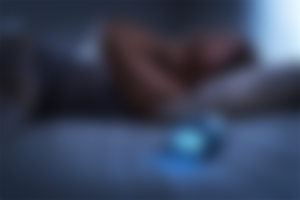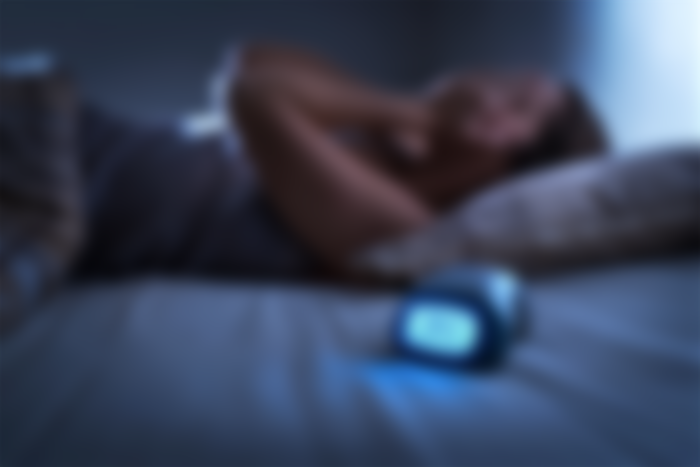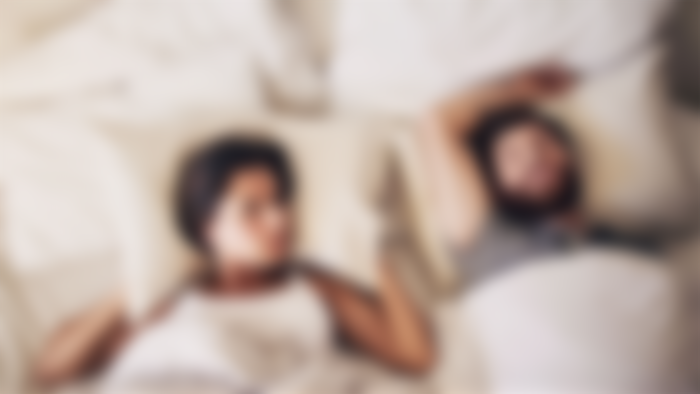My solutions to the most common sleep problems
Do you wake up in the middle of the night to go to the toilet or drink water and then cannot fall back asleep? Do you wake up at 06.00 in the morning despite going to bed late at night? Do you feel like you woke up without getting enough sleep? If your answer to these questions is yes, you are in the right place. The most common sleep problems and their solutions may be a cure for you too.

Waking up in the middle of the night
Waking up during sleep affects your sleep in two ways: firstly, it prevents you from getting a deep REM sleep, and secondly, it makes you less rested because of the lost time.
Once you realize this, you can prevent it from becoming a habit by taking some precautions. To list the precautions;
Make sure the room is dark when you wake up. Turn on the bedside lamp instead of turning on all the lights when going to the toilet or for a drink of water, or install a dim night light in the hallway and turn it on instead of lighting the whole house.
Do not turn on the TV, phone or computer. The lights from the screen take your biological clock out of sleep mode and activate your nervous system. This prevents you from falling asleep again.
Don't eat anything unless you are really hungry. Waking up at night also wakes up your digestive system, which prevents you from falling asleep again. So when you get up to get a drink of water, don't snack while you are in the kitchen.
Keep a pen and paper by your bed. If your sleep is interrupted by things you need to do or responsibilities you have, writing things down so you don't forget them can help you relax and fall asleep.
Do relaxation exercises. Try to relax regularly. Stretch all your muscles, starting with the feet.
Tooth grinding
If you sometimes wake up with a terrible pain in your head or jaw, you may be grinding or clenching your teeth during the night. Although not often mentioned, teeth grinding or clenching is one of the most common causes of sleep problems.
If you are experiencing a similar problem, you may first consult a dentist. In such cases, dentists can usually recommend that you stop drinking alcohol before going to bed at night, stop chewing gum if you chew it, and use a brace that is placed between your teeth while you sleep at night. Botox treatment of the jaw muscles or biofeedback tools called Grindcare are also alternative treatments.
Circadian rhythm disorders
An internal clock, inherent in all of us, provides a 24-hour sleep and wakefulness pattern. This pattern, called circadian rhythm, has a structure that can be affected by the slightest changes. Apart from jet lag, which is the most well-known circadian rhythm disorder, changes in your routine life can also disrupt this pattern.
If you think you have such a problem, take steps to put your body in order. For example, set a bedtime and wake-up time for yourself and try to stick to it no matter what. It may be difficult at first, but do your best to stick to this schedule, weekdays or weekends. Another technique to trigger the circadian rhythm is to be in bright light and exercise during the day. Going out and exercising in the afternoons will keep your body more "awake" throughout the day, preparing you for sleep and rest at the same time.
Going to the toilet too often
Waking up in the middle of the night to go to the toilet is so common that it is known in medicine as "nocturia". As we age, the body's ability to retain fluids for long periods of time weakens. One thing to do is to train your muscles not to go to the toilet every time you wake up. Men, on the other hand, can have their prostate checked. In women, this may be due to incontinence, overactive bladder, infection or cystitis. You may need to consult a doctor for this. On the other hand, both men and women can try Kegel exercises to alleviate this problem. It may also help to reduce fluid intake three hours before going to bed, reduce coffee and tea consumption, and avoid foods with high fluid content after dinner.
Snoring
Even if not all types of snoring are present, some cases of severe snoring can be a sign of sleep apnea. Apart from that, even if apnea is not suspected, snoring itself can impair your sleep quality. In addition to medical treatments for snoring, you can reduce it by taking some precautions. These measures include losing weight, changing your sleeping position, avoiding alcohol and giving up sleeping pills. If these are not enough, you should see a doctor.

Sleep Apnea
If the sounds you make while snoring rise and fall, if you make a sound as if you are trying to hold your breath, these may be a sign of sleep apnea. People with sleep apnea prevent themselves from breathing through the mouth or throat during sleep.
In this case, you should see a specialist to determine what is blocking your breathing in your nose, throat and mouth. You may also need to have a sleep test to measure your oxygen levels. You can then receive treatment as prescribed by the doctors.
Upper airway resistance syndrome
In this syndrome, which is similar to sleep apnea, the air intake through the nasal passage is somehow slowed down or blocked. This is often caused by nasal congestion or the position of your tongue while you sleep. If you have a narrow face, a small jaw and a thin neck, you may have this syndrome.
Many people who suffer from this syndrome find a solution in some breathing aids used while sleeping. A saline nasal spray can also help. However, it is useful to consult a doctor before using these.

The first recommendation of experts for people with such a problem is to identify the habits and environmental factors that cause insomnia. What might be keeping you from sleeping? What do you do before going to bed? What are your eating and computer habits? Is your bedroom dark enough? Is your sleeping environment quiet? Are there objects around to distract you from sleep? By looking at all these things, you can find the cause of your insomnia.


